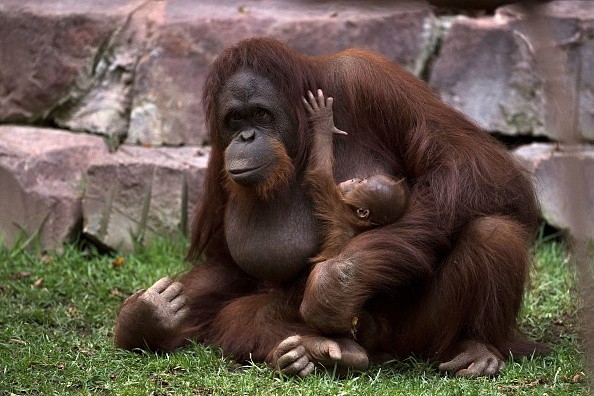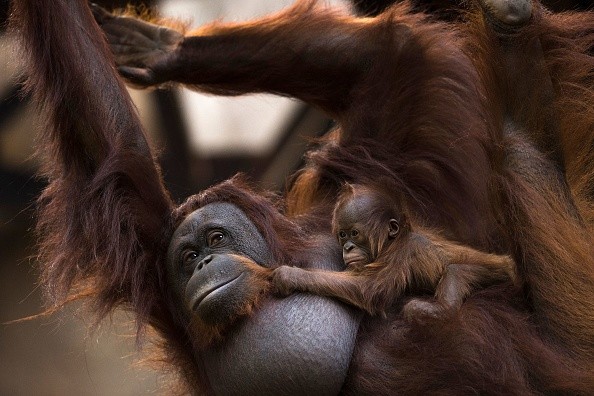Officials at New Orleans' Audubon Zoo announced Monday that a critically endangered Sumatran orangutan had birthed a healthy male, but his twin brother didn't make it out of the womb.

Birth of a Healthy Male Orangutan
12-year-old Menari birthed her first baby on Christmas Eve and she was doing a good job taking care of it, but started experiencing troubles after that, as per a news release. Local OBGYNs and neonatologists, who normally treat people, were called in to treat the baby.
Seconds after Menari was sedated, the scan revealed that the second baby had died and was terribly positioned, as per Phys.org.
According to the zoo, the staff was able to remove it without the need for a C-section.
Conservationists have classified the giant apes known for their red hair as critically endangered. There are several dangers to bears, including hunting and the degradation of the woods and peat bogs in which they spend much of their time.
As palm oil plantations grow into their natural environment, their population has fallen to less than 14,000, according to the Audubon Nature Institute, which operates the zoo.
Zookeepers revealed in October that Menari's pregnancy had a 1% probability of orangutan twins.
Menari's Recovery
In spite of the difficult circumstances, Audubon's senior veterinarian Bob MacLean expressed his gratitude that Menari and the surviving child are together and doing well.
The veterinary team and OBGYN experts are extremely delighted with Menari's recuperation and her natural mothering instincts so far.
McLean said in a statement given to the AP by zoo spokeswoman Annie Matherne that the baby was bottle-fed overnight as Menari recovered.
At the first opportunity, Menari promptly brought the baby back to her arms on Christmas morning, when she successfully resumed feeding.
The zoo says the mother and infant are hidden away to let them bond and to be cared for by keeper and veterinary staff. Apparently, she was doing rather well at it.

Death of the Second Baby
It's not clear what killed the second baby which was also carried till full-term, McLean said.
"The medical team on-hand did indicate that the placenta appeared abnormal. We will be sending tissues for histopathology to glean more information, but those results will be many weeks to come," he said.
In addition to being a first-time mother, Menari was raised by her mother. However, she was able to witness the births of her biological mother Feliz in 2019 and foster sister Reese in February of this year. The zoo said that Menari and Bulan often eat, sleep, and forage together.
The press announcement said that Menari's previous experience with newborns had prepared her for parenthood.
There have been three children born to father Jambi this year, and he also fathered two children born in 2019. In 2018, he made his way to New Orleans from Germany's Hannover Zoo.
Women give birth every 8.2 to 9.3 years - the longest gestation time of any mammal - in Sumatra, according to the International Union for the Conservation of Nature (IUCN).
Related Article : Tapanuli Orangutans: Rarest Great Ape on Earth Might Be Heading to Extinction Soon
For more more news, updates about orangutans and similar topics don't forget to follow Nature World News!
© 2025 NatureWorldNews.com All rights reserved. Do not reproduce without permission.





